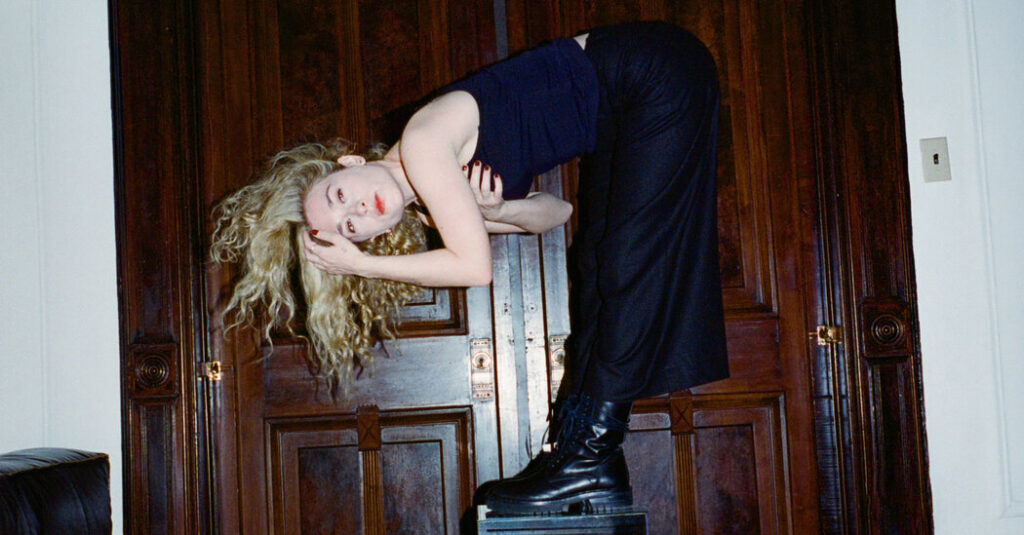But it was on one fateful “date” that she met Yves Rothman, who has gone on to produce both of her records. Rothman got his start making bruising music with the Midwest punk band Living Things, and is a collaborator of the experimental artist Yves Tumor. He’s also worked closely with a handful of singer-songwriters in addition to Teitelbaum — including Aly & AJ and Stella Rose — who straddle rock and pop.
Rothman shepherded Teitelbaum’s rebrand, helping to realign her sound in a way that more authentically reflected her taste — retaining the dark tint of her Baum output, but grounding it in grungy live instruments instead of synths. Applied to “Olympus,” a bleak song about destructive love that ultimately became Blondshell’s debut single, that treatment gave Teitelbaum’s caustic writing an edge it had previously lacked. She sings the final version like she’s dragging around a ball and chain. When she first played Rothman the song, “That’s when he said, ‘We need to make an album,’” she recalled.
Since she became Blondshell, Teitelbaum has frequently been likened to female rock luminaries of an earlier generation — particularly Courtney Love, Dolores O’Riordan and Liz Phair, who took her on tour. While apt, such comparisons feel overly eager to situate the young singer in a sort of feminist matriarchal lineage.
The press materials for “If You Asked for a Picture” cite a different set of sonic references (Red Hot Chili Peppers, Queens of the Stone Age) that suggest a desire to complicate gendered readings of her music. “T&A,” the album’s sardonic and wrenching lead single, which Teitelbaum performed on “Jimmy Kimmel Live!” in a suit, was loosely inspired by “Little T&A” by the Rolling Stones — the archetypal dude band. (Though perhaps this is itself a subtle nod to Phair, whose own “Exile in Guyville” responded to the Stones’ “Exile on Main St.”)
“I think, in some ways, talking about female musicians through the lens of feminism has been a way to minimize the complexity of them as musicians,” said Teitelbaum, choosing her words carefully, and then hedging: “It can be.”
She’s similarly ambivalent about calling her — admittedly confessional — songwriting “vulnerable,” a word that minimizes her agency in the process. Laser-focused and assertive in conversation, she rebutted a characterization of her songs as “insecure,” in reference to their themes of body dysmorphia: “For me, it’s a form of security or confidence to be able to talk about things that feel shameful,” she said. Her posture was understandably defensive: Public-facing Sabrina was protecting songwriter Sabrina, so she could save all her sensitivity for her craft. She has yet to hold back a song for fear of overexposure, she said.


